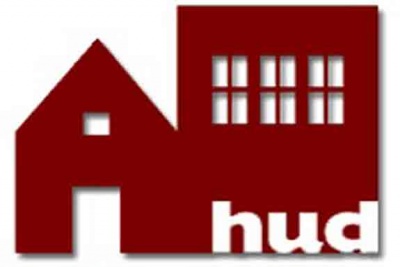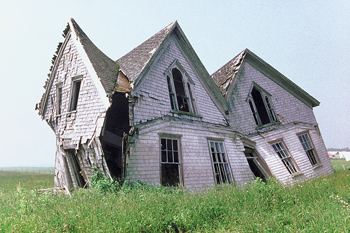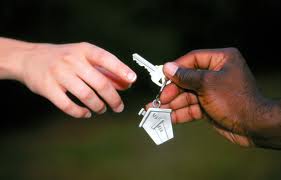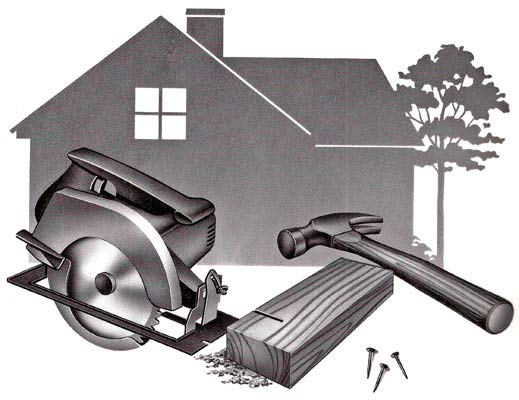
BLOG
FHA Limits for Los Angeles Area
Homeownership is not out of reach. FHA limits in California are one of the highest in the country. I have great lenders that can help you reach your real estate goals! Call me to get started on your homeownership goals!!! Laura Key 310.866.8422
Here are the current limits for Los Angeles (as of August 23, 2013) FHA allows 3.5% downpayment over a 15 to 30 year term!
Single Family $729,750
Duplex $934,200
Tri-Plex $1,129,250
Four-Plex $1,403,400
Source: FHA.com
Great Burbank HUD Home! 2 Bed 2 Bath
HUD Homes are a wonderful way to purchase your first home! Most are FHA approved and don't need much work at all. Make sure you use a HUD experienced agent as myself! I have helped many families obtain their Home Dreams with HUD! Call me today for more info! Laura Key 310.866.8422
2359 N. Reese Place
Burbank CA 91504
Homebuyers clueless about mortgages
Educating homebuyers is one of my favorite things to do! Ask me about my homebuyers class! Laura Key 310.866.8422
The housing market is heating up, yet many house hunters are not prepared to take on the biggest purchases of their lives.
When it comes to mortgages, homebuyers answered basic questions about terms, how to choose a lender and financing wrong nearly one-third of the time, according to an April survey of more than 1,000 current and prospective homeowners by real estate website Zillow.
Among the survey's findings, 31% of buyers don't think it's possible to get a mortgage for less than 5% down; 34% don't know what the term "annual percentage rate" (APR) means and one in four believe you must close with the lender that pre-approves your mortgage.
"All too often buyers focus on negotiating a lower home price and ignore the importance of finding the right loan," said Erin Lantz, director of mortgages for Zillow. "Buyers should always shop multiple lenders and compare rates and fees and read lender reviews in order to find the best loan for their situation."
One example: 34% of respondents believe lenders are required by law to charge the same fees to all clients for credit reports, appraisals and the like. That's wrong. Fees vary from bank to bank and can often be negotiated.
But it's hard to compare those deals if you don't understand what mortgage terms, like "annual percentage rate," mean. The APR factors into fees, upfront points, origination and underwriting fees and other costs that borrowers use to compare the actual cost of loans.
Such knowledge gaps can have long-term consequences. About 34% of first-time homebuyers think they need a down payment of at least 5% to make a home purchase, but loans insured by the Federal Housing Administration can require as little as 3.5% down.
And 24% of buyers believe the best mortgage deals are available through the banks where they currently have their savings and checking accounts, but often competing lenders can undercut those banks by large margins.
"If a homebuyer can lower their interest rate by even half a percentage point, they can not only increase their purchasing power, but save thousands of dollars over the life of the loan," said Lantz.
For every $100,000 borrowed, a half percentage point lower rate would reduce payments by $28 a month on a 30-year, fixed rate loan. That adds up to more than $10,000 over 30 years. Or borrowers could choose to add that $28 savings to each monthly payment. That would shorten the term of the mortgage from 30 years to just over 27 and save $6,500 in interest paid.
Another costly mistake: Many house hunters go shopping with financing in place because it enables them to act more quickly if they see a home they want. But 26% of buyers believe that once they're pre-approved, they're obligated to close the deal with those loans, according to the survey. In reality, there's no obligation. If buyers see better terms available they should take them.
Existing homeowners can also be guilty of ignorance. Some 20% of homeowners surveyed didn't know that underwater mortgages -- those in which borrowers owe more than their homes are worth -- can be refinanced into lower rate loans.
Finally, the survey found that nearly a third of homeowners are unaware that if they go through a foreclosure or short sale, they may not have to wait the full seven years it takes for their credit score to recover and they can buy a home again.
In reality, some homeowners who do short sales can obtain financing to buy another home in as little as two years.
The Consumer Financial Protection Bureau is hoping to make it easier for homebuyers with simplified mortgage forms that help them compare terms and costs and by creating new rules that will protect homeowners from getting into loans they can't afford.
Free home search here! Click the house to begin!
Source: By Les Christie @CNNMoney May 9, 2013
Does HUD Offer Financing On Their Homes?
Buying a HUD Home is not as difficult as you may think! I have helped many people purchase their 1st Home from HUD! Call me today for more details about the process! Laura.A.Key@gmail.com or Visit my website to sign up for FREE HUD Listings! http://www.KeyCaliforniaHomes.com
HUD does not provide direct financing to buyers of HUD Homes. Buyers must obtain financing through either their own cash reserves or a mortgage lender. If you have the necessary available cash or can qualify for a loan (subject to certain restrictions) you may buy a HUD Home. While HUD does not provide direct financing for the purchase of a HUD Home, it may be possible for you to qualify for an FHA-insured mortgage to finance the purchase.
Los Angeles HUD homes, Buying A Hud Home, North Hollywood HUD homes, Westchester HUD Homes, Gardena HUD Homes, Northridge HUD Homes, Santa Clarita HUD Homes, Simi Valley HUD homes, Lemert HUD Homes, Compton HUD Homes, Lynwood HUD Homes, Hawthorne HUD Homes, Inglewood HUD Homes, Baldwin Hills HUD Homes, Playa del rey HUD homes, Marina del Rey HUD Homes, Santa Monica HUD homes, Lakewood HUD homes, Buying A HUD Home, Buying a Los Angeles HUD Home, HUD Trained Agent, HUD NAID agent
HUD-Owned Homes Expected to Surge
Soon the market will be filled with new listings from HUD! Are you prepared? Make sure you use an agent who is HUD experienced and can help you find the home of your dreams. I have closed many HUD homes in the past few years! Let me assist you! Laura Key 310.866.8422
The U.S. Department of Housing and Urban Development is reportedly going to be releasing more of its homes to the market, which could be welcome news to buyers who have faced slim pickings in for-sale inventories.
Over the next two years, experts predict that HUD homes on the market will increase significantly as lenders work through the backlogs of foreclosures and foreclosure reviews.
“The inventory is there, [it’s] just not being released during the banks/servicers review of the loan/mortgage documents,” says Nat Genis, a HUD listing broker in Riverside County, Calif., which is already seeing an increase in HUD-owned homes.
"HUD homes are back," Genis told HousingWire. "FHA financing went away with the 'creative' financing of the 80/20 loans, and now with the increase of FHA financing, these government-backed loans guarantee that if the borrower defaults, HUD will pay off the mortgage, obtain the deed, and re-sell the home."
HUD-owned homes can be appealing because of the discounted sales price, even though they can be in poor condition often times, HousingWire reports.
HUD had 39,442 homes in its REO inventory nationwide as of Feb. 28, 2013—with 20,536 of those having pending contracts on them, according to HUD.
Source: “HUD homes add to inventory-starved market,” HousingWire (April 29, 2013)
Who Can Buy A HUD Home?
Buying a HUD Home is not as difficult as you may think! I have helped many people purchase their 1st Home from HUD! Call me today for more details about the process! Laura.A.Key@gmail.com or Visit my website to sign up for FREE HUD Listings!http://www.KeyCaliforniaHomes.com
Almost anyone! If you have the cash or can qualify for a loan (subject to certain restrictions) you may buy a HUD Home. HUD Homes are initially offered to owner-occupant purchasers (people who are buying the home as their primary residence). Following the priority period for owner occupants, unsold properties are available to all buyers, including investors.
Los Angeles HUD homes, Buying A Hud Home, North Hollywood HUD homes, Westchester HUD Homes, Gardena HUD Homes, Northridge HUD Homes, Santa Clarita HUD Homes, Simi Valley HUD homes, Lemert HUD Homes, Compton HUD Homes, Lynwood HUD Homes, Hawthorne HUD Homes, Inglewood HUD Homes, Baldwin Hills HUD Homes, Playa del rey HUD homes, Marina del Rey HUD Homes, Santa Monica HUD homes
How to Assess the Real Cost of a Fixer-Upper House
When you buy a fixer-upper house, you can save a ton of money, or get yourself in a financial fix. People see shows on television and think it's easy to purchase a home that needs fixing. Know what you are getting into before you put the money down on the table! Call me with your questions Laura Key 310.866.8422
1. Decide what you can do yourself
TV remodeling shows make home improvement work look like a snap. In the real world, attempting a difficult remodeling job that you don’t know how to do will take longer than you think and can lead to less-than-professional results that won’t increase the value of your fixer-upper house.
- Do you really have the skills to do it? Some tasks, like stripping wallpaper and painting, are relatively easy. Others, like electrical work, can be dangerous when done by amateurs.
- Do you really have the time and desire to do it? Can you take time off work to renovate your fixer-upper house? If not, will you be stressed out by living in a work zone for months while you complete projects on the weekends?
2. Price the cost of repairs and remodeling before you make an offer
- Get your contractor into the house to do a walk-through, so he can give you a written cost estimate on the tasks he’s going to do.
- If you’re doing the work yourself, price the supplies.
- Either way, tack on 10% to 20% to cover unforeseen problems that often arise with a fixer-upper house.
3. Check permit costs
- Ask local officials if the work you’re going to do requires a permit and how much that permit costs. Doing work without a permit may save money, but it'll cause problems when you resell your home.
- Decide if you want to get the permits yourself or have the contractor arrange for them. Getting permits can be time-consuming and frustrating. Inspectors may force you to do additional work, or change the way you want to do a project, before they give you the permit.
- Factor the time and aggravation of permits into your plans.
4. Doublecheck pricing on structural work
If your fixer-upper home needs major structural work, hire a structural engineer for $500 to $700 to inspect the home before you put in an offer so you can be confident you’ve uncovered and conservatively budgeted for the full extent of the problems.
Get written estimates for repairs before you commit to buying a home with structural issues.
Don't purchase a home that needs major structural work unless:
- You’re getting it at a steep discount
- You’re sure you’ve uncovered the extent of the problem
- You know the problem can be fixed
- You have a binding written estimate for the repairs
5. Check the cost of financing
Be sure you have enough money for a downpayment, closing costs, and repairs without draining your savings.
If you’re planning to fund the repairs with a home equity or home improvement loan:
- Get yourself pre-approved for both loans before you make an offer.
- Make the deal contingent on getting both the purchase money loan and the renovation money loan, so you’re not forced to close the sale when you have no loan to fix the house.
- Consider the Federal Housing Administration’s Section 203(k) program, which is designed to help home owners who are purchasing or refinancing a home that needs rehabilitation. The program wraps the purchase/refinance and rehabilitation costs into a single mortgage. To qualify for the loan, the total value of the property must fall within the FHA mortgage limit for your area, as with other FHA loans. A streamlined 203(k) program provides an additional amount for rehabilitation, up to $35,000, on top of an existing mortgage. It’s a simpler process than obtaining the standard 203(k).
6. Calculate your fair purchase offer
Take the fair market value of the property (what it would be worth if it were in good condition and remodeled to current tastes) and subtract the upgrade and repair costs.
For example: Your target fixer-upper house has a 1960s kitchen, metallic wallpaper, shag carpet, and high levels of radon in the basement.
Your comparison house, in the same subdivision, sold last month for $200,000. That house had a newer kitchen, no wallpaper, was recently recarpeted, and has a radon mitigation system in its basement.
The cost to remodel the kitchen, remove the wallpaper, carpet the house, and put in a radon mitigation system is $40,000. Your bid for the house should be $160,000.
Ask your real estate agent if it’s a good idea to share your cost estimates with the sellers, to prove your offer is fair.
7. Include inspection contingencies in your offer
Don’t rely on your friends or your contractor to eyeball your fixer-upper house. Hire pros to do common inspections like:
- Home inspection. This is key in a fixer-upper assessment. The home inspector will uncover hidden issues in need of replacement or repair. You may know you want to replace those 1970s kitchen cabinets, but the home inspector has a meter that will detect the water leak behind them.
- Radon, mold, lead-based paint
- Septic and well
- Pest
Most home inspection contingencies let you go back to the sellers and ask them to do the repairs, or give you cash at closing to pay for the repairs. The seller can also opt to simply back out of the deal, as can you, if the inspection turns up something you don’t want to deal with.
If that happens, this isn’t the right fixer-upper house for you. Go back to the top of this list and start again.
Source: www.houselogic.com - G.M. Filisko is an attorney and award-winning writer whose parents bought and renovated a fixer-upper when she was a teen. A regular contributor to many national publications including Bankrate.com, REALTOR® Magazine, and the American Bar Association Journal, she specializes in real estate, business, personal finance, and legal topics.
‘Boomerang Buyers’ Making a Comeback in California
People who went through foreclosures or short sales during the housing crisis have been gradually returning to the Orange County, Calif., market for at least a year, according to real estate industry observers.
Buyers generally must wait at least three years to qualify for a government-backed Federal Housing Administration mortgage, and it can take seven years to get a conventional loan backed by Fannie Mae or Freddie Mac.
Real estate professional Andreea Stucker, who lost a condo due to a bad loan she could not afford, is among the emerging ranks of “boomerang buyers.” She believes that experience has made her a better practitioner.
More than three-fourths of those who lost their homes will try to become homeowners again, says Paul Scheper, division manager for Greenlight Financial in Irvine, Calif. Nationwide, more than 3.4 million households have completed the minimum waiting period.
Source: "Boomerang Buyers Making a Comeback," Orange County (Calif.) Register (Feb. 15, 2013)
Have you had a foreclosure or a short sale in your past? Has enough time passed so you can own again? Call Laura Key at 310.866.8422 to see if you could be eligible for homeownership again! www.KeyCaliforniaHomes.com
FHA Loan Limits in Los Angeles County
Thinking of buying a home and going with an FHA loan? Here are the FHA loan limits for Los Angeles County of California. For information on other states, please feel fee to contact me at Laura.A.Key@gmail.com LOS ANGELES COUNTY FHA LOAN LIMITS (Median Sales Price $535,000)
- Single Family $729,750
- Two Family $934,200
- Three Family $1,129,250
- Four Family $1,1403,400
FHA loans have been helping people become homeowners since 1934. How do we do it? The Federal Housing Administration (FHA) - which is part of HUD - insures the loan, so your lender can offer you a better deal.
- Low down payments
- Low closing costs
- Easy credit qualifying
What does FHA have for you?
Buying your first home? FHA might be just what you need. Your down payment can be as low as 3.5% of the purchase price, and most of your closing costs and fees can be included in the loan. Available on 1-4 unit properties.
Want a fixer-upper? FHA has a loan that allows you to buy a home, fix it up, and include all the costs in one loan. Or, if you own a home that you want to re-model or repair, you can refinance what you owe and add the cost of repairs - all in one loan.
Financial help for seniors Are you 62 or older? Do you live in your home? Do you own it outright or have a low loan balance? If you can answer "yes" to all of these questions, then the FHA Reverse Mortgage might be right for you. It lets you convert a portion of your equity into cash.
Want to make your home more energy efficient? You can include the costs of energy improvements into an FHA Energy-Efficient Mortgage.
How about manufactured housing and mobile homes? Yes, FHA has financing for mobile homes and factory-built housing. We have two loan products - one for those who own the land that the home is on and another for mobile homes that are - or will be - located in mobile home parks.
Ask an FHA lender to tell you more about FHA loan products.
Loans for Fixer Uppers
Low housing inventory has resulted in a lack of move-in ready homes available for sale. Many buyers, especially first time buyers, tend to overlook properties in need of extensive repairs, but a federally backed lending program enables buyers to roll the cost of necessary repairs into their mortgage, which can sometimes yield a quick return on investment.
Making sense of the story
- The Federal Housing Administration’s 203(k) program provides for loans that cover purchase and renovation costs for single-family homes and multifamilies with up to four units. The total loan amount is based on the property’s appraised value once the repairs are completed. The down payment requirement is 3.5 percent.
- FHA 203(k) loans are not available to investors – borrowers must live in the properties. But some borrowers have used a 203(k) loan to buy and renovate a multifamily property, live in the property for a year or so, refinance into a conventional loan, and then sell the rehabbed property.
- The loans are more expensive than conventional financing, because the interest rates are slightly higher and private mortgage insurance is required.
- Additionally, borrowers must pay a building consultant, who writes the initial estimate of the cost of planned repairs. Fees range from $400 to $1,000, depending on the extent of the repairs. The consultant also ensures that the repairs will bring the house up to government health and safety standards.
- The loans do not cover the addition of luxury items, such as a pool. But allowances are made toward the cost of repairing or removing a pool, as well as for the addition of solar panels.
- Renovations must be made within six months after closing. The contractor is paid in intervals after periodic inspections of how the work is progressing. Borrowers should make sure they hire experienced contractors who understand that they won’t be paid upfront and must adhere to strict timelines.
For more information contact Laura Key, Real Estate Agent at Laura.A.Key@gmail.com
www.KeyCaliforniaHomes.com
Source: New York Times By LISA PREVOST Published: January 17, 2013







